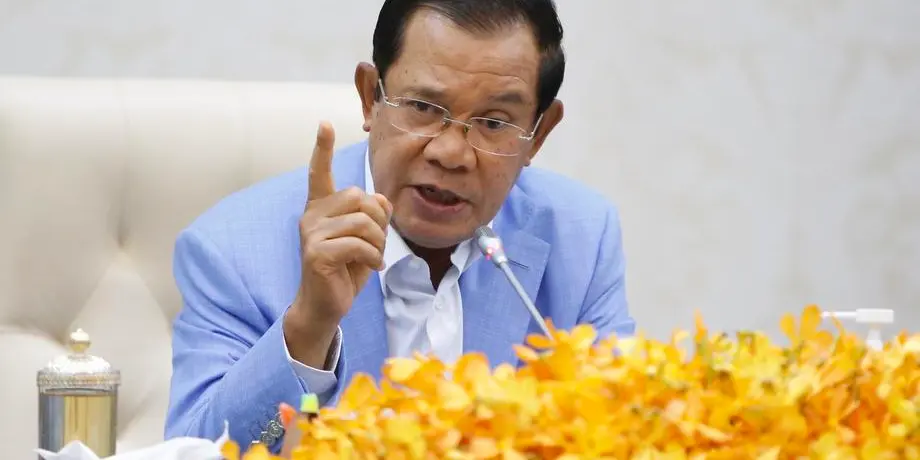
Southeast Asian MPs denounce threats made by Hun Sen against the opposition in Cambodia ahead of general elections
January 12, 2023

JAKARTA – Parliamentarians from Southeast Asia are denouncing as a direct attack on democracy the threats of physical violence and legal action made by the Cambodian Prime Minister, Hun Sen, to anyone who dares to criticize his party, the ruling Cambodian People’s Party (CPP), ahead of the general election scheduled for July this year.
According to media reports, Hun Sen has warned the opposition that, if someone expresses any criticism against the CCP, “there are only two options: one is using legal action, the other is using sticks…. What do you want? Either you face legal action in court or I rally CPP people for a demonstration and beat you guys up.”
“Threats of physical violence, especially from a man who has ruled his country for almost four decades and has turned it into a dictatorship, should send chills down the spine of anyone who believes in democracy. Hun Sen and his regime have a long story of silencing, harassing, and persecuting the opposition, and his threats are fully consistent with that. He should be unreservedly denounced for eroding democratic institutions in Cambodia,” said Mercy Barends, Member of the Indonesian House of Representatives, and Board Member of ASEAN Parliamentarians for Human Rights (APHR).
The Hun Sen regime has steadily consolidated itself over the years. The main opposition party, and the only that posed a challenge to the CPP hegemony, the Cambodia National Rescue Party (CNRP), was arbitrarily dissolved in 2017. That opened the way for the CPP to win all 125 seats in parliament at the national elections held the following year, turning Cambodia into a de facto one-party state tightly controlled by Hun Sen, in power since 1985, and his allies.
The CPP has used the judiciary as a tool to persecute and jail members of the opposition. Dozens of CNRP leaders and members have been charged with treason and sentenced in kangaroo trials, including the party’s former President, Sam Rainsy, and its Vice-President, and Board Member of APHR, Mu Sochua, both in exile. The leader of the opposition inside the country, Kem Sokha, was jailed in 2017, and then released in 2019, but he is not allowed to leave Cambodia or engage in political activities, and stands accused of treason in a case that has been dragging on for years.
“In contemporary Cambodia, the judiciary is just another instrument put at the service of Hun Sen and his cronies to cement their power, and separation of powers, one of the main pillars of democracy, simply does not exist. By threatening legal action against its critics in the same breath that he is threatening physical attacks by his followers, Hun Sen is making very clear how he sees both: as lackeys whose sole raison d’être is to do his bidding,” said Barends.
Currently the main opposition party operating inside the country is the Candlelight Party, which managed to get over 22 percent of the votes in the Communal and Sangkat Elections held in June 2022, despite a campaign of intimidation launched by the government during the campaign.
Yet harassment is not confined to politicians, as human rights activists, journalists or union leaders have also been persecuted by the regime. One of the most prominent cases is that of Cambodian-US lawyer Theary Seng, who was sentenced in June 2022 to six years in jail for criticizing Hun Sen on Facebook, along with dozens others. Meanwhile, the trade union leader Chhim Sithar was arrested in November for allegedly breaking the terms of her bail.
“As the general election in Cambodia approaches, ASEAN and the global community at large should not be fooled into believing that it can be a democratic process in the conditions prevailing now in the country. They should put real pressure on the Cambodian government to unconditionally release all political prisoners, stop its campaign of harassment against the opposition, and comply with the terms of the Paris Peace Accord, signed in 1991 and designed to put the country on a democratic path,” added Barends.
ASEAN Parliamentarians for Human Rights (APHR) was founded in June 2013 with the objective of promoting democracy and human rights across Southeast Asia. Our founding members include many of the region's most progressive Members of Parliament (MPs), with a proven track record of human rights advocacy work.